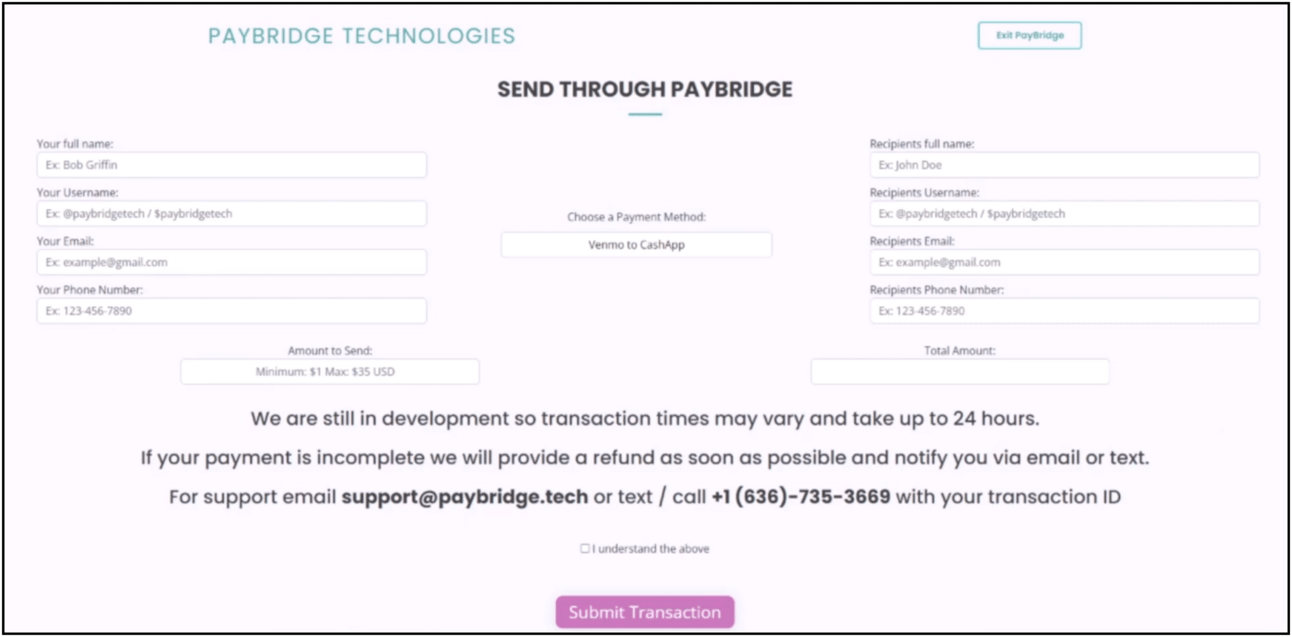
Just do it.
At least that’s what Nike tells us. 🤷
Yet we constantly make excuses…if we only had the time, motivation, or resources, we could do amazing things.
I’m talking about things like:
The people who buck up and do those things run the world. Everyone else is along for the ride.
Today, I’m going to dive into some science-backed ways you can help your kids stop procrastinating, and introduce you to a group of teens who are already disrupting the ~$3 trillion peer-to-peer payment market.
In today’s issue:
Tactical Tuesday: Things you can start doing today that will solve your kid’s procrastination problem (and yours!).
Something to inspire you: These four teens are taking the fintech industry by storm, proving just how capable kids can be.
Ivy’s takeaway: Proof why real-world learning trumps theory.

Procrastination is worse than you think
Procrastination isn’t a quirky personality trait, it kills dreams. It’s a problem that needs to be solved.
Dr. Tim Pychyl, author of Solving the Procrastination Puzzle, names several common excuses we use to avoid doing things:
It’s not due for weeks
I can do that work in a few hours
I work better under pressure (riiiiiight… 🙄)
Sound familiar? I’ll admit, I’ve been guilty of a few of these before. 😬
And I bet you’ve heard your kids use these excuses, too.
Here are two simple ways Dr. Pychyl suggests you can train your kids to overcome their biggest challenge — themselves.
1. Allow your kids to express negative emotions — then get on with their lives
At its core, procrastination is an emotional problem.
If your kid is procrastinating, odds are they’re running away from some negative feeling.
So how can you help your kid move past the emotional barriers of ditching procrastination?
❓ Don’t get angry – ask
It’s easy to turn to anger when you catch your kid putting off their homework, or trying to skip out on their chores — it’s a justified thing to be angry about.
But that’s not going to help them overcome their procrastination.
Instead, ask them how they’re feeling about the task they’re putting off.
❤️ Empathize
When they tell you they feel confused by their math homework, or grossed out by cleaning the toilet, let them know those feelings are ok by empathizing.
Take this opportunity to open up to them with stories from your own childhood where you (more than likely) felt the same way.
👀 Look into the future
It’s especially hard for kids to understand how procrastinating creates bigger problems in the future.
Walk them through it by asking them questions, and allowing them to draw their own conclusions.

These discussions might also reveal real problems, like academic struggles or sincere disinterest in activities, which are important to identify.
But in many cases, it’s simply a matter of recognizing the emotions behind the procrastination, and pushing through them.
2. Just get started
For most kids, the biggest hurdle isn’t knocking out their entire essay. It’s more like:
Turning off distractions
Opening up a Google Doc
Writing the first few bullets of an outline
Here’s some ways you can help your kid simply get started:
🧠 Hack their brain
Have you ever added stuff you’re already planning on doing to your to-do list, just for the mental boost?
Once you feel the joy of checking off one box, it’s easy to check off another, and another…
Help your kids do the same thing by turning all the little things they already do into “small wins”.

Help their brain think it’s already being productive, and it’ll be easier for them to actually be productive.
🔗 Break it down
If the first step is so small –so hilariously doable– it’s going to be a lot easier to get your kids to do it.
So if it feels too intimidating to write their first paragraph, ask them to:
Write the first sentence
Write the first word
Or just open a blank document
Addressing the emotional causes behind procrastination and making it as easy as possible to just get going will jump-start your kid’s productivity — and yours too. 😉

Meet the teens building the fintech product that you’ll want to use ASAP
When it comes to exchanging money with apps, you have your choice of a few major players like:
Venmo
Cash App
PayPal
Now imagine you want to pay someone who has a different app than you do. How would you solve this problem?
A team of four students has built a revolutionary product that bridges all of these apps, allowing you to exchange money with anyone, anywhere, no matter what app they have.
I spoke with two of the team members, Shakeel Majeed and Navin Narayanan, to find out how they built their company, PayBridge.
It all started with a problem…
Last year, Navin was trying to split the bill for hosting a Minecraft server with his friends. But everyone had different apps, so…
Navin wasn’t getting paid back anytime soon. 😞
Luckily, he was in BETA Camp at the time — so he was on the hunt for a problem that needed solving.
The first iteration of PayBridge was a simple landing page, and transactions were processed via Google Forms.
“It was really badly formatted,” laughs Navin.

Always keep screenshots of your early work — and look back often to see how far you’ve grown!
Then came the team…
A few months later, Navin joined forces with Shakeel, Trinayaan Hariharan, and Venkat Mandava.
This rockstar team filled Navin’s skills gap, and together, they catapulted PayBridge forward with a new website, styled to perfection:

Now this looks like a company I’d trust to handle my money. 💸
It’s remarkable how this team of students has been growing PayBridge for over a year while also:
Taking AP classes
Doing sports and activities
Getting excellent grades
“I don’t think it has negatively impacted our studies,” says Shakeel. “I think it’s improved them.”
And finally… Customers!
When the team finally got their first transaction, it was totally unexpected.
“This customer was just out of the blue… I was in India at the time on vacation and it was late at night for me,” says Navin.
The team panicked to get the unexpected transaction completed across three separate time zones.
It was a test they didn’t know they were ready for.
But luckily, they passed. 👊
“That was like a year in the making,” says Shakeel.
The high schoolers have already done more than most adults — hiring and firing team members, meeting with investors, and working with real customers.
“The skills we’re learning are so valuable,” says Navin. “[Building a business] prepares you for the real world.”
It’s true — the team at PayBridge is learning skills like:
💬 Communication — when you can talk to an investor, you can talk to anyone.
⏰ Time management — the work never stops at an early-stage startup.
🤝 Teamwork — between defining your roles and making commitments, building a business is the ultimate group project.
These skills are valuable for any teen to learn, whether or not they want to pursue business as a career.
And the PayBridge teens are knocking it out of the park. ⚾

Your kid doesn’t need to wait to start building business skills
If your kid is interested in starting a business, they shouldn’t wait. This is like forced procrastination.
Just. Stop.
Learning by doing is so much more powerful than just learning theory.

According to this study, learning by doing gives kids more authority and responsibility over their education, as well as getting them more involved in the learning process.
This was definitely the case for the team at PayBridge:
“If you saw our code a few months ago compared to now, it’s definitely gotten a lot more complex,” says Navin. “Building PayBridge, I’ve improved my programming skills.”
So don’t let a lack of skill be the barrier to entry. Your kid can start their business right now — and I’d love to help!
Until next time,
Ivy
Follow my journey on LinkedIn
